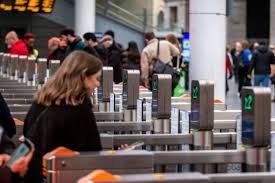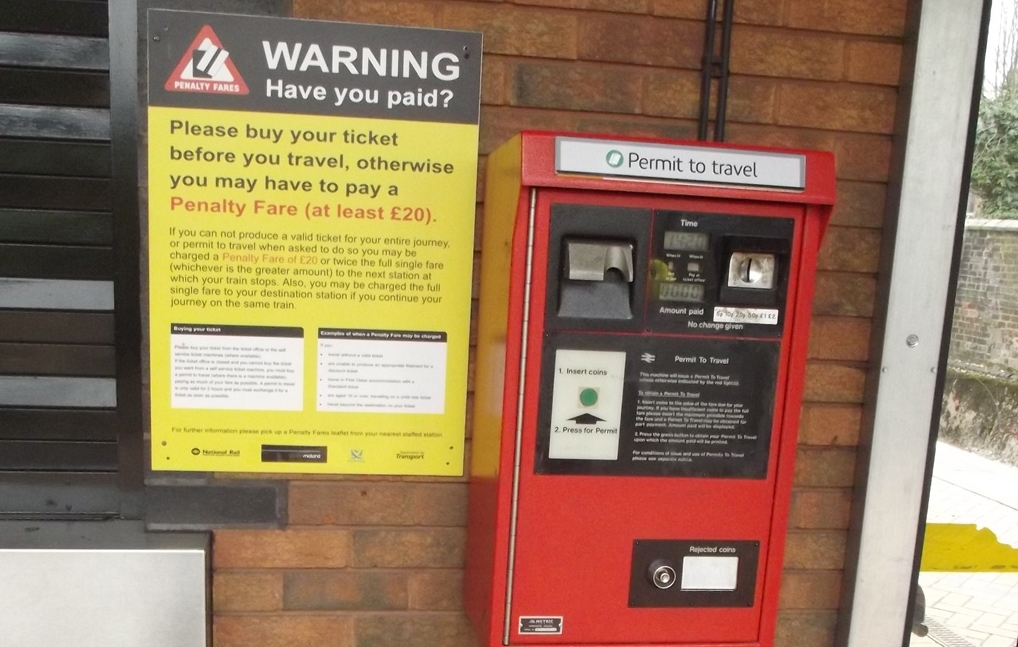Fare evasion is often seen as a mere inconvenience, with people assuming they will simply pay a penalty and move on. However, in many instances, a simple ticket dispute can quickly escalate into a legal matter, particularly if transport operators believe there was a deliberate intent to dodge payment or a repeated failure to settle fines. As a solicitor specialising in fare evasion cases, I've observed how a seemingly harmless oversight can turn into a criminal charge, leaving passengers facing court appearances, hefty fines, or even a criminal record.
This article explores the point at which fare evasion shifts from a civil penalty to a criminal offence under UK law. We will debunk common myths about what operators can and cannot do, clarify the differences between honest mistakes and deliberate misconduct, and highlight effective ways to protect your rights if you find yourself under investigation for fare evasion.
1. Fare Evasion in the UK: The Basics
Legislation and Byelaws
In the UK, fare evasion is governed primarily by the Regulation of Railways Act 1889 and various Railway Byelaws, as well as local statutes for buses and trams. Depending on the specific circumstances, the enforcement might fall under strict liability offences, meaning an offence can be proven simply because you travelled without a valid ticket, regardless of intent.
What is a Civil Penalty?
Many fare evasion incidents begin with a penalty fare notice, which is largely a civil matter. Passengers caught without a valid ticket, or who have tapped in/out incorrectly, may be issued a fixed penalty (commonly around £20 or more). Paying this notice on time typically resolves the situation without further legal ramifications or a criminal record.
When Things Escalate
Although not every accidental underpayment will land you in court, repeated offences, wilful avoidance, or ignoring penalty notices can lead operators to take stronger action. In such circumstances, fare evasion can cross the line from a minor administrative infraction to a prosecutable criminal offence.
2. Common Myths About Fare Evasion and Criminal Offences
Myth 1: “It's Only a Fine, So It's Not Serious”
Some passengers wrongly assume that as long as they pay the penalty fare (or ignore it), there are no major consequences. In reality, transport operators routinely pursue legal action against chronic offenders or in cases where the outstanding amount is large. A single incident can also escalate if the operator believes fraud was involved.
Myth 2: “I Didn't Intend to Evade the Fare, So It Can't Be Criminal”
Even without direct intent, fare evasion can sometimes be prosecuted under strict liability. While courts may show leniency for genuine mistakes, the law does not always require an operator to prove you deliberately avoided the fare. If you regularly travel outside your ticketed zone or repeatedly fail to tap your card properly, a defence of “I didn't mean it” may not suffice.
Myth 3: “I Paid the Difference Later, That Should Solve It”
Paying the outstanding fare after being caught may not exempt you from liability if the operator or the court believes your actions were wilful or fraudulent. If you are accused of more serious misconduct, such as using someone else's ticket or forging a pass, settling the original fare might not halt a criminal investigation.
Myth 4: “They Can't Arrest Me for This”
Although rare for first-time offenders, persistent fare evaders or those who fail to attend court hearings can face arrests. The authorities take deliberate, repeated fare evasion seriously, partly due to the cumulative financial impact on the transport network.
3. When Fare Evasion Crosses the Line
1. Deliberate Fraud
Using another person's season ticket, employing a counterfeit pass, or repeatedly travelling outside your paid zone may be construed as intentional deception, going beyond a mere accidental oversight.
2. Multiple Unpaid Penalty Notices
If you ignore or fail to respond to penalty fares repeatedly, transport operators can interpret this pattern of non-compliance as systematic evasion rather than a single slip-up.
3. Aggravating Factors
Fare evasion can become a criminal matter if additional factors are present, such as:
- Providing false information to inspectors.
- Refusing to cooperate with Revenue Protection Officers.
- Attempting to flee a station or obstruct staff who are performing their duties.
When these aggravating elements come into play, operators often decide that civil penalties alone are insufficient and proceed with criminal charges.
4. The Legal Path from Notice to Court Summons
1. Penalty Fare Stage
It usually starts with a penalty fare notice. You have a set timeframe (often 21 days) to pay or contest. If the operator is satisfied your case is minor and you act promptly, it may end here.
2. Investigation by the Operator
In more complex cases, particularly where suspected repeat offences or fraud is involved, the transport authority can investigate further. They may review CCTV footage, check travel history, or gather statements from inspectors.
3. Prosecution Decision
Based on the evidence, the operator decides whether to settle the matter administratively or bring criminal proceedings. This decision often hinges on whether they believe you deliberately evaded the fare or have a history of similar incidents.
4. Court Summons
If the operator opts to prosecute, you’ll receive a summons to a Magistrates’ Court. At this stage, it’s vital to seek legal advice, as a conviction can lead to fines, criminal records, or, in rare cases, custodial sentences.
5. Defences and Mitigating Circumstances
Strict Liability vs. Intent
Even though fare evasion can be a strict liability offence, presenting evidence that you made genuine attempts to pay, such as showing a valid season ticket but mis-logged journey details, can influence how severely the court treats the matter.
Honest Mistakes
If a ticket machine malfunctioned, staff gave incorrect advice, or you experienced personal emergencies (e.g., illness), these factors can reduce the likelihood of heavy penalties, provided you have credible evidence.
Willingness to Settle
Courts or operators may be open to out-of-court settlements if you promptly acknowledge the debt and pay any reasonable fines. This approach could prevent a formal conviction and help you avoid further legal complications.
Professional Guidance
A solicitor experienced in fare evasion law can help you compile evidence, represent your interests, and negotiate for lesser penalties or case dismissals where possible. They can also assess the likelihood of success if you choose to defend the charge in court.
6. Potential Consequences of Criminal Prosecution
1. Fines and Costs
Magistrates can impose fines exceeding the initial penalty fare, plus court costs and a victim surcharge. The total amount can significantly exceed what you would have paid at the civil penalty stage.
2. Criminal Record
A conviction under fare evasion statutes might appear on Disclosure and Barring Service (DBS) checks, affecting employment opportunities, travel visas, and professional licences.
3. Community Sentences or Custodial Sentences
Although uncommon for first-time fare evaders, habitual offenders or those found guilty of associated crimes (like fraud) could face community service orders. In extremely serious cases, particularly those involving substantial financial loss or repeated offences, custodial sentences are possible.
4. Reputational Damage
Beyond legal penalties, a criminal record for fare evasion can tarnish your personal and professional reputation. Employers and colleagues may question your reliability, especially in roles that handle finances or sensitive data.
7. Protecting Yourself: Tips to Avoid a Criminal Offence
- Pay or Appeal Promptly
- If you receive a penalty fare notice, respond within the stated deadline. Ignoring it increases the risk of the matter escalating.
- Keep Travel Receipts and Records
- Save any proof of payment, such as paper tickets, contactless or Oyster records, and screen captures of online purchases. Such documentation may be crucial if you're accused of intentionally evading fares.
- Use Correct Passes and Tickets
- Avoid the temptation to borrow or share someone else's travel card, no matter how harmless it seems. Using a friend's or family member's season ticket is a straightforward path to prosecution if caught.
- Be Honest with Inspectors
- If you're stopped, cooperate fully. Providing false information can trigger more serious charges, and staff notes or witness statements often carry weight in court.
- Seek Legal Advice Early
- At the first indication that an operator may bring charges, consult a solicitor. Prompt legal intervention can sometimes result in an out-of-court settlement or a more favourable resolution.
Conclusion: Avoid a Criminal Record, Know Your Rights and Take Action Swiftly
Fare evasion might begin as a minor misstep or a misunderstanding, but it can quickly escalate into a serious legal matter. By understanding the point at which civil penalties can become criminal charges, you are better equipped to protect your rights and avoid dire consequences such as hefty fines or a permanent blemish on your record. If you find yourself facing potential prosecution, seeking professional legal advice at the earliest opportunity can make all the difference, often preventing an unfortunate situation from spiralling into a criminal offence.



